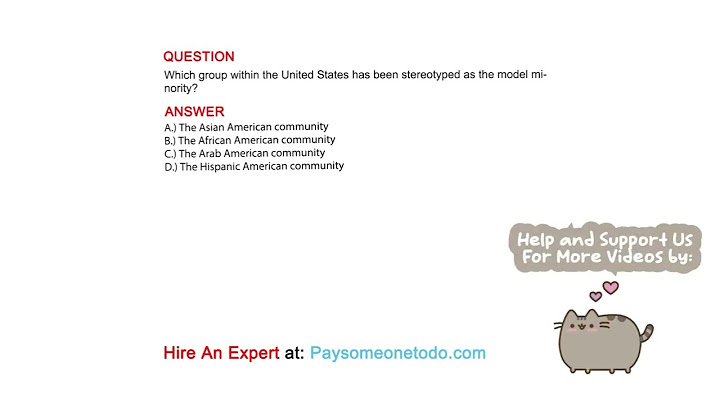Get help with accessInstitutional accessAccess to content on Oxford Academic is often provided through institutional subscriptions and purchases. If you are a member of an institution with an active account, you may be able to access content in one of the following ways: Show
IP based accessTypically, access is provided across an institutional network to a range of IP addresses. This authentication occurs automatically, and it is not possible to sign out of an IP authenticated account. Sign in through your institutionChoose this option to get remote access when outside your institution. Shibboleth / Open Athens technology is used to provide single sign-on between your institution’s website and Oxford Academic.
If your institution is not listed or you cannot sign in to your institution’s website, please contact your librarian or administrator. Sign in with a library cardEnter your library card number to sign in. If you cannot sign in, please contact your librarian. Society MembersSociety member access to a journal is achieved in one of the following ways: Sign in through society siteMany societies offer single sign-on between the society website and Oxford Academic. If you see ‘Sign in through society site’ in the sign in pane within a journal:
If you do not have a society account or have forgotten your username or password, please contact your society. Sign in using a personal accountSome societies use Oxford Academic personal accounts to provide access to their members. See below. Personal accountA personal account can be used to get email alerts, save searches, purchase content, and activate subscriptions. Some societies use Oxford Academic personal accounts to provide access to their members. Viewing your signed in accountsClick the account icon in the top right to:
Signed in but can't access contentOxford Academic is home to a wide variety of products. The institutional subscription may not cover the content that you are trying to access. If you believe you should have access to that content, please contact your librarian. Institutional account managementFor librarians and administrators, your personal account also provides access to institutional account management. Here you will find options to view and activate subscriptions, manage institutional settings and access options, access usage statistics, and more. AP U.S. HistoryScoring GuideUnit 9 Progress Check: MCQCopyright © 2017. The College Board. These materials are part of a College Board program. Use or distribution of these materials online orin print beyond your school’s participation in the program is prohibited.Page 1 of 10“The Reagan era unfolded amid major social and political transitions in the United States. The traumaof President Kennedy’s assassination in 1963, followed by the foreshortened presidencies of LyndonJohnson and Richard Nixon, generated widespread public alienation from electoral politics andmainstream politicians. The disastrous war in Vietnam cracked open the bipartisan consensus overcontainment that had held during the cold war and badly divided Democrats against Democrats andRepublicans against Republicans, as well as against the opposing party.“. . . Reagan and his supporters, unlike the battered Democrats and the disgraced Republicanestablishment, gave the voters a compelling way to comprehend the disorienting and often dispiritingtrends of the 1970s—and to see those trends not as product of their own defects (as Reagan’sDemocratic predecessor, Jimmy Carter, came to imply) but as a consequence of bad leadership. WithReagan as its likeable, ever-optimistic standard-bearer and ultimate symbol, the Republican rightdelivered what sounded like straightforward, commonsense solutions to the nation’s ills: cut taxes, shrinkgovernment domestic spending, encourage private investment, and keep the military strong while aidingthose abroad who were fighting communist tyranny.”Sean Wilentz, historian, The Age of Reagan: A History, 1974–2008, published in 2008“Race and taxes, on their own, have changed the votes of millions of once-Democratic men and women.But it was the collision of race and taxes with two additional forces over the past twenty-five years thatcreated a chain reaction, a reaction forcing a realignment of the presidential electorate. These twoadditional forces were, first, the rights revolution demanding statutory and constitutional protections for,among others, criminal defendants, women, the poor, non-European ethnic minorities, students,homosexuals, prisoners, the handicapped, and the mentally ill; and, second, the rights-related reformmovement focusing on the right to guaranteed political representation that took root within theDemocratic party in the late 1960s and throughout the 1970s.“This chain reaction acted most powerfully on two key swing voter groups, the white, European ethnic,often Catholic, voters in the North, and the lower-income southern white populists. For as long as voterscast Democratic ballots, the liberal coalition thrived; when they did not, the liberal coalition collapsed.Throughout the 1970s and the 1980s, these key groups of voters, once the mainstay of the New Dealalliance, determined the viability of the conservative presidential majority. The collapse of the political leftand the ascendance of a hybrid conservative populism dominated by the affluent have had enormouspolicy consequences. . . . Which of the following pieces of evidence would refute Postel's claim in the first paragraph of the excerpt about the ethos of modernity and progress and the populists?Which of the following pieces of evidence would refute Postel's claim in the first paragraph of the excerpt about the "ethos of modernity and progress" and the Populists? Populist speakers often used religious examples and metaphors to make moral arguments for their policies.
Which of the following most directly contributed to the decision in Philadelphia?Which of the following most directly contributed to the decision in Philadelphia referenced in the excerpt to build a specific meeting house for the new preachers? Religious pluralism was more accepted in the middle colonies and particularly in the colony of Pennsylvania than elsewhere.
|

zusammenhängende Posts
Werbung
NEUESTEN NACHRICHTEN
Werbung
Populer
Werbung

Urheberrechte © © 2024 decemle Inc.


















